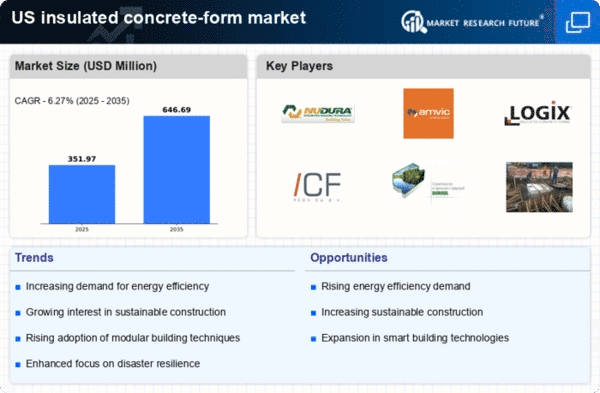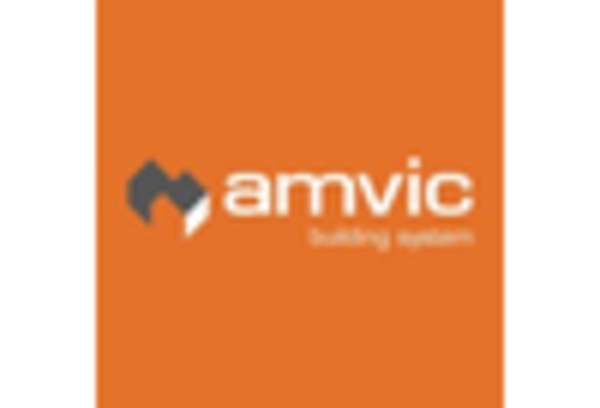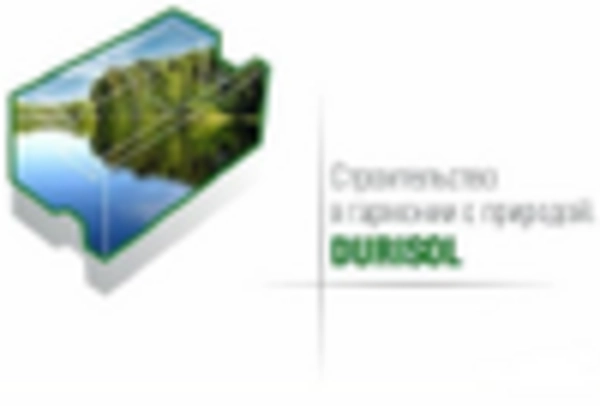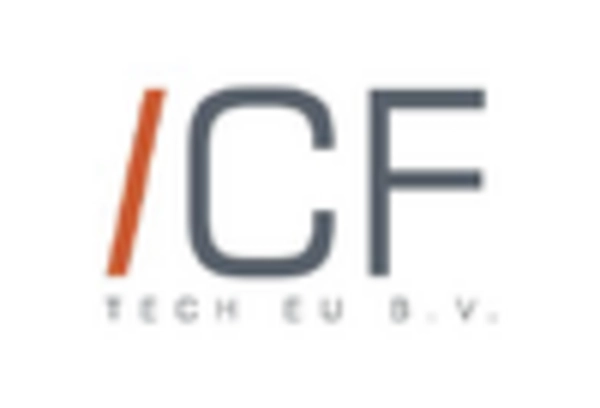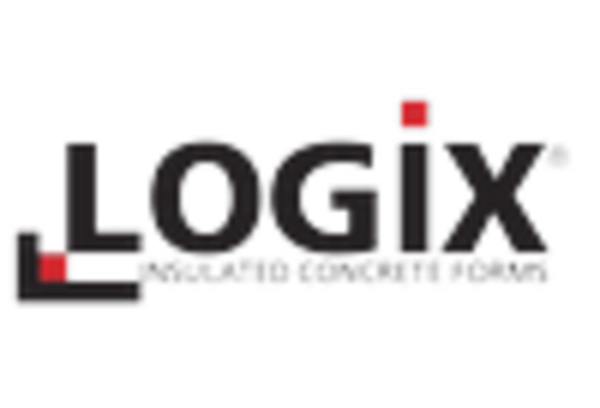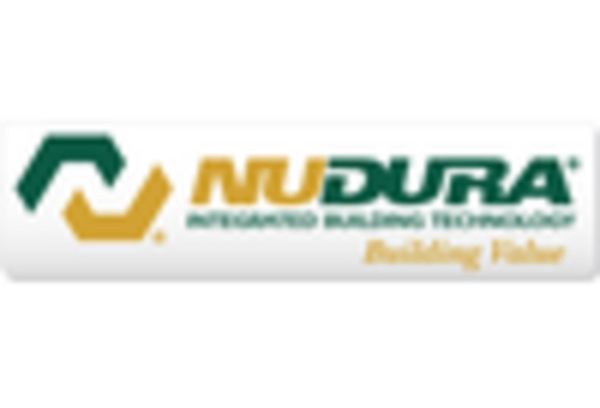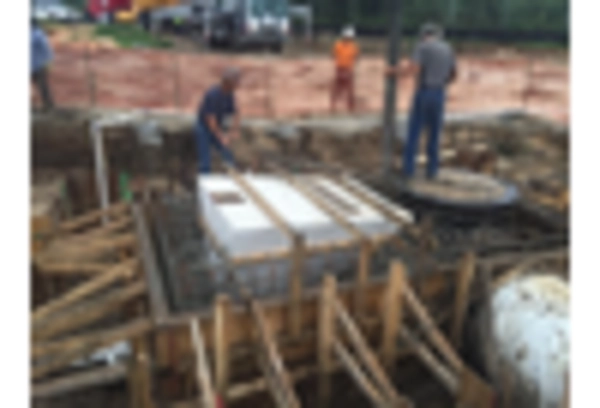Increased Awareness of Climate Resilience
The insulated concrete-form market is benefiting from heightened awareness regarding climate resilience in construction. With extreme weather events becoming more frequent, builders are increasingly seeking materials that can withstand harsh conditions. Insulated concrete forms provide superior strength and durability, making them suitable for regions prone to severe weather. This trend is reflected in the growing number of projects incorporating resilient design principles, with an estimated 20% of new constructions in the US now focusing on climate resilience. As awareness of these issues continues to rise, the insulated concrete-form market is expected to expand as a preferred solution for resilient building.
Growing Focus on Sustainable Building Practices
The insulated concrete-form market is experiencing a notable shift towards sustainable building practices. This trend is driven by increasing awareness of environmental issues and the need for energy-efficient construction. In the US, the demand for sustainable materials has surged, with a reported growth of 15% in the adoption of eco-friendly building solutions. Insulated concrete forms, known for their superior insulation properties, contribute to reduced energy consumption and lower carbon footprints. As builders and developers prioritize sustainability, the insulated concrete-form market is likely to benefit from this growing focus, leading to increased market penetration and innovation in product offerings.
Technological Innovations in Construction Materials
The insulated concrete-form market is influenced by ongoing technological innovations in construction materials. Advancements in manufacturing processes and material science have led to the development of more efficient and effective insulated concrete forms. For instance, the introduction of lightweight materials and improved insulation technologies has enhanced the performance of these forms. This innovation is crucial as it aligns with the industry's push for higher energy efficiency and sustainability. As the insulated concrete-form market adapts to these technological changes, it is likely to attract new investments and drive further growth in the sector.
Rising Construction Activities in Residential Sector
The insulated concrete-form market is poised for growth due to the rising construction activities in the residential sector. Recent data indicates that residential construction spending in the US has increased by approximately 10% over the past year. This surge is attributed to a combination of low mortgage rates and a growing population, which drives the demand for new housing. Insulated concrete forms offer advantages such as enhanced thermal performance and durability, making them an attractive choice for residential builders. As the housing market continues to expand, the insulated concrete-form market is likely to see a corresponding increase in demand.
Government Incentives for Energy-Efficient Construction
The insulated concrete-form market is positively impacted by government incentives aimed at promoting energy-efficient construction. Various federal and state programs offer financial benefits for builders who utilize energy-efficient materials and practices. These incentives can include tax credits, grants, and rebates, which encourage the adoption of insulated concrete forms. Recent reports suggest that participation in such programs has increased by 25% among construction firms in the US. As these incentives continue to evolve, the insulated concrete-form market is expected to see a significant boost in demand as builders seek to capitalize on available financial support.


